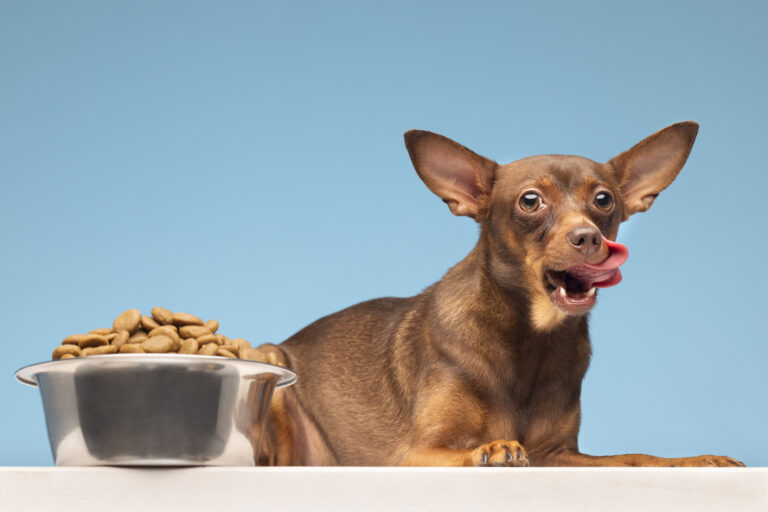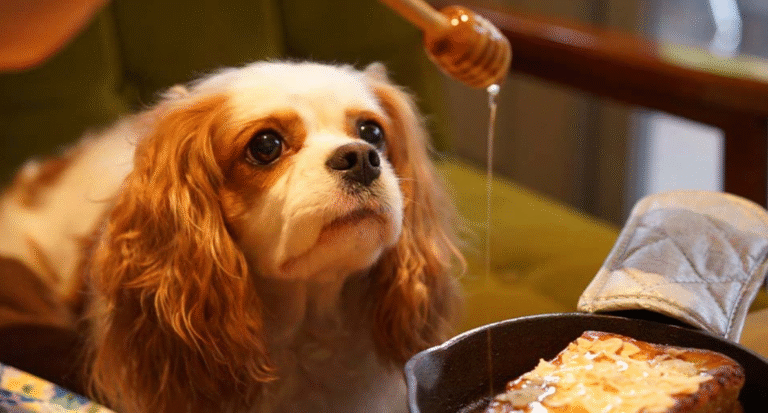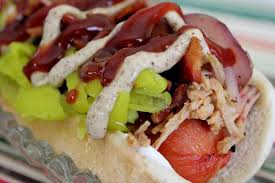Will Dog Food Hurt a Cat? Understanding the Risks and Differences
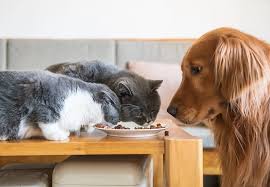
Will Dog Food Hurt a Cat? Understanding the Risks and Differences As pet owners, it’s common to see our animals occasionally share meals or snacks, especially in households with both dogs and cats. However, many cat owners wonder, *will dog food hurt a cat?* While it may seem harmless to allow your cat to nibble on a bit of dog food now and then, it’s important to understand that cats and dogs have different nutritional needs. Regularly feeding a cat dog food can lead to serious health issues. In this article, we will explore the key differences between dog food and cat food, why feeding dog food to cats can be harmful, and what to do if your cat eats dog food.
Will Dog Food Hurt a Cat? Understanding the Nutritional Differences
To answer the question will dog food hurt a cat?, it’s essential to understand why dogs and cats have distinct dietary requirements. While both are animals that need a balanced diet, the nutritional needs of a cat are more specific than those of a dog.
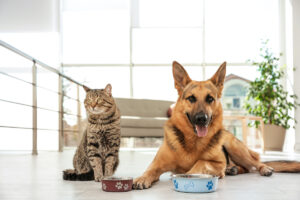
-
Protein Requirements
Cats are obligate carnivores, which means their bodies rely heavily on animal-based proteins to thrive. Unlike dogs, who can tolerate a more varied diet, cats must have specific amino acids such as taurine, which is found almost exclusively in animal tissues. Dog food, on the other hand, typically does not contain sufficient amounts of taurine or other essential nutrients for cats.
If a cat regularly eats dog food, it may not receive enough protein, particularly from animal sources, to meet its dietary needs. Over time, this can lead to muscle wasting, weakness, and other serious health issues.
-
Taurine Deficiency
Taurine is an essential amino acid for cats. It is crucial for heart health, eye function, and overall metabolic processes. Dogs can synthesize taurine on their own, but cats must obtain it through their diet. Dog food is generally lower in taurine, as dogs do not require as much of it. If a cat is fed dog food for an extended period, it could develop taurine deficiency, which can lead to severe health problems, including blindness, heart disease, and even death.
-
Vitamin A
Cats also require vitamin A in its preformed form (found in animal tissues), whereas dogs can convert beta-carotene (found in plant sources) into vitamin A. Dog food may not provide enough preformed vitamin A, which can result in a deficiency in cats, leading to skin problems, poor coat condition, and vision issues.
-
Fatty Acids
Cats need more essential fatty acids, such as arachidonic acid, which is found in animal fats.
Dog food usually contains lower levels of these essential fatty acids, which can cause deficiencies in cats. Lack of these fatty acids can result in poor skin health, dull fur, and even more serious issues like liver problems or heart disease.
Can Dog Food Cause Digestive Issues in Cats?
While the nutritional imbalances mentioned above are the primary concern, it’s also worth noting that feeding dog food to a cat may cause digestive problems. Cats have a different digestive system than dogs, and their bodies are designed to process high-protein, low-carbohydrate diets. Dog food often contains more carbohydrates and less protein, which can be difficult for cats to digest properly. This can lead to gastrointestinal upset, including vomiting, diarrhea, and constipation.
Why Do Cats Eat Dog Food?
It’s not uncommon for cats to nibble on dog food, especially if it’s left out or if a cat is curious. Cats are often drawn to the smell or taste of dog food, but it doesn’t mean that it’s an appropriate meal for them. Some cats may also eat dog food out of boredom or hunger, especially if their own food is unavailable.
What Are the Risks of Feeding Dog Food to Cats?
Feeding dog food to cats on a regular basis poses several risks, including the following:
-
Malnutrition
As discussed earlier, the biggest risk is malnutrition. Cats require more protein, taurine, vitamin A, and essential fatty acids than dogs do. Dog food doesn’t meet these needs, and over time, this can cause serious deficiencies. Without the right balance of nutrients, a cat’s health can deteriorate.
-
Organ Damage
A lack of taurine in a cat’s diet can cause damage to vital organs such as the heart and eyes. Taurine deficiency can lead to dilated cardiomyopathy (a heart condition) and retinal degeneration (which can lead to blindness). Since dog food lacks sufficient taurine, feeding it regularly to a cat can result in these severe health issues.
-
Obesity
Many dog foods are higher in carbohydrates and lower in protein, which can cause weight gain in cats. Since cats are obligate carnivores and require high-protein diets, the imbalance in dog food can result in fat accumulation, leading to obesity. Obesity in cats can lead to other health problems, including diabetes and joint issues.
-
Behavioral Issues
Cats are more likely to develop behavioral problems if they are not receiving the proper nutrients they need from their food. This can include increased irritability, a lack of energy, and even a decrease in litter box use.
While feeding a cat dog food occasionally is unlikely to cause immediate harm, it should not be a regular practice. A few bites here and there will likely not cause significant damage. However, over time, consistently eating dog food can lead to nutritional deficiencies, digestive upset, and other health problems. If your cat eats dog food occasionally, it’s important to ensure that they are still receiving their proper, balanced diet to avoid long-term health risks.
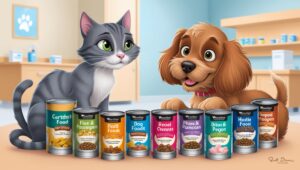
What to Do If Your Cat Eats Dog Food
If your cat eats dog food, it’s important to monitor them for any signs of digestive upset or illness. If they’ve only had a small amount, there’s likely no cause for concern. However, if your cat has eaten dog food over a longer period, it may be a good idea to consult with a veterinarian. Your vet can assess your cat’s overall health and provide guidance on any necessary dietary changes.
Steps to Take:
- Observe Your Cat : Keep an eye on your cat for any unusual signs, such as vomiting, diarrhea, or lethargy.
- Consult Your Veterinarian: If your cat has been eating dog food regularly, schedule a veterinary checkup to assess their health and ensure they aren’t suffering from malnutrition or nutrient deficiencies.
- Provide Proper Cat Food: Ensure that your cat has access to a high-quality, nutritionally balanced cat food that meets their specific dietary needs.
How to Prevent Cats from Eating Dog Food
To avoid the temptation of dog food, consider these preventive measures:
– Separate Feeding Areas: Feed your cat and dog in different areas of the house, and ensure that the dog food is out of reach of the cat.
– Supervise Mealtimes: If your cat tends to wander over to the dog’s food bowl, try to supervise mealtimes to prevent them from sneaking bites of dog food.
– Provide Plenty of Cat Food: Ensure that your cat has plenty of food and treats available so that they don’t feel the need to look for alternative sources of nutrition.
Conclusion
So, *will dog food hurt a cat?* Yes, it can. Dog food is not formulated to meet the specific nutritional needs of cats, and regularly feeding it to a cat can lead to serious health problems such as malnutrition, organ damage, and digestive issues. While an occasional nibble of dog food is unlikely to cause harm, it should never replace a cat’s proper diet. To keep your cat healthy, always provide them with high-quality cat food that is rich in the nutrients they need.
For more information about the dietary needs of cats and other pets, you can refer to the article on Wikipedia

